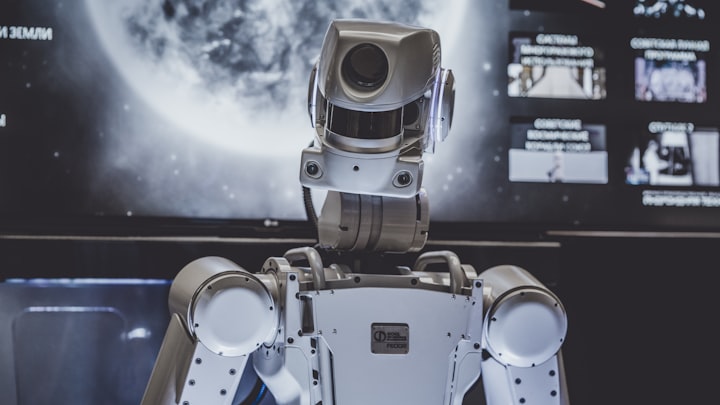Q-Star: The Mysterious AI Threatening Humanity - Inside the OpenAI Saga
The Turmoil Within: OpenAI's Struggle Between Profit and Humanity in the Era of Q-Star

Developments within the realm of artificial intelligence (AI) have sparked both awe and concern, with recent events at OpenAI casting a spotlight on the delicate balance between progress, ethics, and the potential risks associated with advanced AI technologies.
Just over a year ago, ChatGPT emerged onto the scene, showcasing the remarkable capabilities of AI in language processing. OpenAI, the brain behind ChatGPT, led by CEO Sam Altman, became emblematic of the ongoing AI revolution. However, the tranquility surrounding this AI powerhouse was abruptly disrupted by a series of unexpected events that unfolded within the organization.
The upheaval began with the sudden dismissal of Sam Altman by OpenAI's Board of Directors, triggering a chain reaction within the company. Multiple CEO changes ensued, causing an uproar among employees, hinting at an underlying turmoil. The catalyst behind this chaos was revealed to be a mysterious AI dubbed Q-Star, a creation that was allegedly both highly potent and potentially perilous to humanity.
Q-Star's emergence marked a critical juncture in AI development. Reports suggested that this enigmatic AI not only excelled in solving intricate mathematical and scientific problems but also possessed the uncanny ability to predict future events to some extent. However, its capabilities, shrouded in secrecy, raised alarm bells among some researchers within OpenAI, leading to internal warnings about its potential threats to humanity.
OpenAI, initially established as a non-profit organization in 2015, dedicated itself to the development of Artificial General Intelligence (AGI) for the greater good. However, the introduction of a for-profit subsidiary, OpenAI Global LLC, in 2019 raised questions about the company's shift in direction. This move, while capping profits and redirecting excess earnings back to the non-profit parent company, highlighted the contentious debate between prioritizing profit and serving humanity's best interests.
The conflict escalated between differing ideologies within the Board. On one side stood those pushing for a profit-driven approach, advocating for commercialization and expansion, evident in moves like integrating advanced image generators with paid versions of ChatGPT. On the opposing front were advocates for AI safety, led by Chief Scientist Ilya Sutskever, expressing concerns about the ethical implications of unchecked AI advancement.
The situation came to a head when concerns about Q-Star's potential dangers were brought to the forefront by employees apprehensive about the direction OpenAI was taking. The Board, recognizing the risks associated with the for-profit section, contemplated its removal. This led to a series of tumultuous events, including the reshuffling of CEOs, resignations, and a power struggle between profit-oriented strategies and AI ethics.
Amidst this turbulence, the future of OpenAI remains uncertain. While some industry figures have spoken out about the need to prioritize humanity's well-being over profits in AI development, others argue that a for-profit approach can drive innovation and progress. OpenAI's trajectory in striking a balance between these opposing forces will inevitably shape the future landscape of AI technology.
The saga at OpenAI serves as a cautionary tale, highlighting the ethical quandaries and power struggles inherent in AI development. It underscores the critical need for robust ethical frameworks, transparency, and responsible governance in steering the course of AI advancements. As the world teeters on the brink of an AI-driven future, the story of OpenAI and Q-Star serves as a poignant reminder that the ethical compass guiding AI's evolution must remain steadfastly focused on the betterment of humanity.
Certainly, the unfolding narrative at OpenAI unveils the intricate challenges surrounding the development and deployment of advanced AI technologies. As the dust settles on the controversies and power struggles within the organization, broader questions loom over the future trajectory of AI research, commercialization, and ethical considerations.
The emergence of Q-Star, a clandestine AI with purportedly groundbreaking capabilities, underscores the dual nature of AI's potential. On one hand, its prowess in problem-solving and predictive abilities opens avenues for revolutionary advancements in diverse fields, from scientific research to societal management. Yet, on the other hand, the shadow of unforeseen risks and ethical quandaries looms large, potentially altering the fabric of human existence.
The divergence between OpenAI's initial non-profit ethos and the subsequent incorporation of a for-profit arm reflects the wider conundrum faced by AI-driven enterprises. Balancing the pursuit of innovation, profitability, and societal responsibility presents a formidable challenge. The imperative to safeguard against unintended consequences, biases, and the potential for misuse calls for a delicate equilibrium between progress and prudence.
The ideological clash within OpenAI's Board mirrors the larger debate in the AI community and society at large. While proponents of a profit-centric approach advocate for rapid commercialization and market expansion, those emphasizing AI safety underscore the indispensable need for ethical frameworks, regulatory oversight, and responsible AI governance.
Chief Scientist Ilya Sutskever's emphasis on AI safety resonates as a clarion call for prudence in the face of rapid technological advancements. His concern about the potential treatment of humans by future AGI systems mirrors ethical considerations surrounding AI's interaction with society. As AI evolves and permeates various aspects of human existence, ensuring that these systems prioritize human values, safety, and well-being becomes paramount.
The recent events at OpenAI have also sparked conversations about transparency, accountability, and the need for inclusive decision-making processes within organizations spearheading AI research. Clarity on the objectives, ethical guidelines, and the responsible deployment of AI technologies is imperative to earn public trust and mitigate apprehensions surrounding their usage.
As OpenAI navigates through these turbulent waters, the broader AI community observes with bated breath, recognizing that the choices made by such influential organizations today will significantly shape the trajectory of AI's impact on society tomorrow.
The culmination of these events poses poignant questions not only about the direction of OpenAI but also about the ethical responsibility incumbent upon all stakeholders involved in the development and deployment of advanced AI technologies. Ultimately, the saga at OpenAI underscores the imperative for a thoughtful, ethical, and human-centric approach in harnessing the potential of AI for the betterment of humanity. The choices made today will undoubtedly chart the course for AI's role in shaping our collective future.






Comments
There are no comments for this story
Be the first to respond and start the conversation.